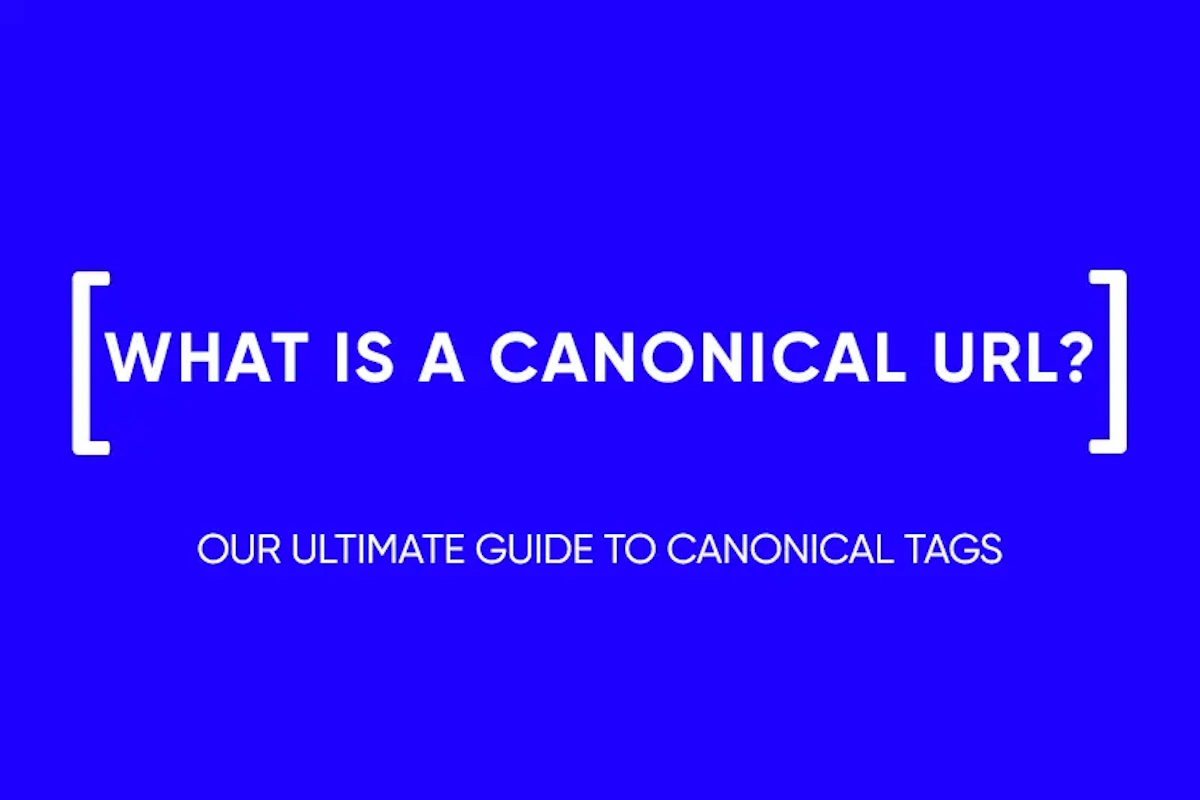What Are Some Common SEO Mistakes To Avoid?
Search Engine Optimization (SEO) is a critical element of digital marketing that involves enhancing the visibility of a website in organic (non-paid) search engine results. It sums up a lot of tactics, techniques, and strategies aimed at improving the rankings of websites across search engines like Google. With optimization of factors such as content, site structure, and meta tags, SEO makes it easier for search engines to crawl, index, and understand the content of a website. Effective practices of SEO help a site appear more prominently in search results for queries that are relevant, thereby increasing the chances of attracting targeted traffic.
Importance of SEO in digital marketing
Search Engine Optimization (SEO) comes to any help in today’s digital era for enhancing every internet user with a ghastly experience for failing in online marketing. SEO helps make online visibility less elusive, providing an easier way to find and engage with the content. An optimized site will receive more quality traffic for effective and credible internet presences, conversion rates, brand visibility, and ultimately revenue gains. Also, the cost is significantly lower than in paid advertising methods while providing long-lasting results. Businesses should bring up SEO and guarantee they can have a strong online presence where it is possible to excel in their competition and get a chance to realize the intended goal of their marketing strategy.
- Ignoring Site Loading Speed: Sure, one of the largest SEO mistakes is not taking into account the time a site takes to load. A website that takes time to load either aggravates users or, on a more serious note, decreases your search engine ranking. Page speed is one of the ranking factors that Google uses; hence, faster websites rank better. Optimize images, leverage browser caching, and minimize heavy scripts for better loading times.
- Trying to Rank for the Wrong Keywords: Another very common SEO mistake is spending efforts on keywords that don’t make sense, either because they are too broad, too competitive, or irrelevant in meaning. This will lead to low conversion rates and wasted effort. Focus on long-tail keywords that pertain to your products or services and are of lower volume and a similar intent for your target audience.
- Poor Keyword Research: Very poor keyword research may drastically decrease your chances to succeed at SEO. What good will you derive from investing in keyword research tools that might lead to search terms which are relevant and high-volume, and with very low competition, in comparison to the amount of effort and the stakes you have made in this respect?
- Overusing Keywords (Keyword Stuffing): Another very blatant SEO strategy that does great damage to a website’s ranking is keyword stuffing. This outdated strategy harms your site’s SEO and also degrades the quality of the content, because most users find it difficult to read through your content, rendering it unreadable. Instead, think of creating valuable, well-written content that flows naturally for the user rather than overloading it with keywords.
List of 26 Most Common SEO Mistakes
Failing to Adequately Answer Search Intent
While a simple yet crucial aspect of SEO, failing to meet the specific needs or questions that users are actively seeking answers for will result in reduced effectiveness in search results. Ensure that your content directly addresses the questions of your audience, be it information-seeking, making a purchase, or seeking a certain service. You enhance user engagement and, therefore, increase the chances of higher rankings when you produce content that meets these intents.
Poor Default Metadata Usage

Metadata, with the titles of web pages and meta descriptions, informs users and search engines of the subject covered on each page. The biggest mistake, therefore, is the poor use of default, generic, or repeated metadata in various pages of the site. The use of unique and descriptive metadata enhances the click-through rate from search results due to concise and informative content previews to the user. Customize each page’s metadata, which includes a keyword, description, and a title that relates to the content being found on the page.
Neglecting to Mind Structure
A well-organized page with clear headings (H1, H2, H3) and logical subdivisions enhances user experience and helps search engines understand and rank content. Optimizing the structure of your page through the use of bullet points, short paragraphs, and relevant subheadings will also contribute to better engagement and SEO outcomes.
Unoriginal, Weak, or Duplicate Content
A key SEO mistake, publishing content that is unoriginal, weak, or copied from other sources, doesn’t seem to offer much value to users and can eventually lead to search engine penalties for plagiarism or low-quality content. Come up with original, high-quality, and engaging content that provides value and answers the needs of your audience. Avoid duplicate content within your site too, because it might confuse search engines and dilute the authority of your site.
Little or No Content (or Duplicate Content)
Websites with minimal content on pages or repetitive content across multiple pages are in big trouble in terms of optimization. Search engines like well-written content that provides value to users and produces quality search engine rankings. Ensure that your pages have substantial content that caters to the needs of your audience, ensuring that this content is not thin and is not duplicated, since this can hurt your SEO efforts.
Not Optimizing Images

Images can significantly improve user experience but can also slow down your site and affect rankings if not properly optimized. Large images can slow down your page load times, and missing alt attributes can fail to add SEO value to images. Compress image files, use descriptive filenames, and provide relevant alt text along with your images for easier accessibility and SEO performance.
Lack of Effective Internal Linking
One key reason why internal linking is crucial for SEO is that it assists search engines in locating new pages, understanding site structure, and distributing page authority throughout the site. Failing to apply internal linking or ineffective anchor text can limit the visibility and ranking of your pages. Use a strategic approach in regard to internal linking structure so that the user and the search engines can be guided to the relevant content, giving them descriptive anchor text information of what is being linked to.
Not Registering with Google Search Console
Refusing to sign up for a Google Search Console is a huge blunder for any website owner or SEO specialist. It provides you with priceless information regarding your site’s performance in terms of visibility issues, search traffic, and crawling errors, all of which can be used to up the SEO. With a search console access, you can track your site’s health and make informed decisions on how to improve your search rankings.
No Use of Analytics Tools

Not making use of analytics tools, for instance, Google Analytics, makes your website’s SEO process and overall health vulnerable. Analytics give you the critical information about user behavior, the source of the traffic, the number of page views, and the conversion rate so that one can understand the behavior of the user on the site. By considering this data, one can take data-driven decisions to enhance user experience, increase traffic, and improve the SEO strategies.
Buying Backlinks, or No Strategy For Backlinks at All
Investing money in buying backlinks can damage your site in ways that are worse than its credibility and rankings. In most cases, these bought backlinks usually come from spammy or irrelevant sites that look suspicious to both user and search engine algorithms. Instead, work on earning good quality backlinks naturally through high-value content and legitimate engagement through outreach and doing good content marketing efforts.
Lack of Mobile-Friendliness
With mobile browsing being the dominant trend of using a website, having a mobile-friendly website has become a non-negotiable requirement in its own right in regard to SEO. Websites that are not optimized for mobile devices are likely to have lower rankings on search results, as Google uses mobile-first indexing. Ensure that your website is user-friendly across all the platforms and the content is easily accessible and usable across all the devices used to access it.

Ignoring UX and Site Structure Best Practices
User experience (UX) and site structure are major components of SEO that often dictate how easily users, as well as search engines, are able to navigate and understand your site. Ignoring best practices in these areas makes the site structure confusing and leaves users unsure of where to go. Implement clear navigation, a logical site hierarchy, and a design that addresses the needs of the user, which will therefore boost not only UX but also SEO.
Not Adding Structured Data
In fact, structured data, often referred to as schema markup, is a code format that you can add to your website to make it easier for search engines to read and interpret the contents of your pages. Not adhering to structured data is a missed opportunity to improve your site’s visibility in search results through rich snippets, which may help increase click-through rates. The use of structured data allows search engines to get an accurate and precise understanding of your content, be it articles, products, reviews, or events, to better boost your search presence.
Robots.txt Mistakes
The robots.txt file is a critical component of your website that tells search engines which pages, or sections, should not be crawled or indexed. Errors in the robots.txt file, such as inadvertently blocking important content or allowing indexing of sensitive or duplicate pages, can significantly impact your SEO performance. Always review and update your robots.txt file so that search engines could crawl and index your site with very few issues along with correctly enhancing your visibility in search results.
Not Creating Sitemaps or Having Sitemaps with Errors

A sitemap is the ultimate tool for search engines as they help navigate and update the pages on your website. A lack of having a sitemap of sitemaps with errors can hinder search engines’ effectiveness in crawling the site. This shortcoming may lead to delayed indexing of newly created pages or new content on the site. Make sure you build a good XML sitemap with no errors and submit it to search engines through their respective webmaster tools for better indexing.
Not Fixing Redirect Chains or Broken Links
Broken links and redirect chains can negatively impact both user experience and SEO. A redirect chain is what occurs when there are multiple redirects between the initial URL clicked and the destination URL, slowing down the time it takes for the page to load and diluting the link equity. Broken links refer to 404 error pages that frustrate users and signal to search engines that your site may not be offering a good user experience. Always audit your site on a regular basis for such problems, since finding and fixing them will enable users and search engine crawlers to have a smooth navigational experience.
Not Using the Right URL Structure
The way URLs are built will determine SEO. A URL that is difficult for users to understand and hard for search engines to crawl will have URLs that are long, complicated, or lack proper keywords. A good structure should produce URLs that are as concise as possible and offer relevant keywords with a proper hierarchy in a manner that resonates with content on the pages. Ensure the URLs are user-friendly and optimized for search engines to improve visibility and usability.
Non-Secure HTTP Sites
In today’s digital age, website security is more than just an option; it’s a necessity. Sites that still use the non-secure HTTP protocol are flagged by browsers as “Not Secure,” which can lead visitors to leave the site and negatively affect SEO rankings. Google has said that HTTPS, or the encrypted data that comes between the user’s browser and the site, is a ranking signal. Making your site more secure and improving your SEO works together.
Bad Robots.txt Settings
Misconfiguration of the robots.txt file may lead to search engines not crawling or indexing important pages of your site, leaving good opportunities for more substantial search rankings. An overly restrictive robots.txt setting would deny access to essential resources, while overly permissive settings might mean that duplicates or irrelevant pages might end up getting indexed. It is very important that you use your robots.txt file to configure properly so that the search engines can access and index all your value content while denying them access to the information or any part that is undesired to be accessed.

Incorrect Canonicalization Settings
Canonical tags are used to tell search engines which version of a page is the master or preferred version when similar or duplicate content exists. Incorrect implementation of canonical tags can lead to issues with content being improperly indexed, which can dilute your site’s authority and negatively impact SEO. Ensure that canonical tags are correctly used to point to the correct version of a page, helping search engines understand your site structure and avoid indexing duplicate content.
Making Changes Way Too Often
Incessant changes to content, design, or structure on your website with no solid strategy in mind may hamper your SEO performance. It would be perceived that frequent changes could confuse both the users and search engines alike, leading to fluctuations in rankings and loss of user confidence. While it is important to update your website for freshness and relevance, ensure that the changes are being done for a purpose and have gone along with following SEO best practices to ensure consistency and authority.
Redirect to the Wrong Pages
Redirection is a common practice in giving direction to users and search engines to a different URL from the one they originally requested, but such redirects may lead to unpredictable results. Redirects to irrelevant or unrelated pages could make users frustrated, increase bounce rates, and contribute to the dilution of your website’s content relevancy in the view of search engines. The redirects must take users to content that is closely related to what they were seeking while preserving the integrity of the user journey and the ranking potential of your site.
Tools and Tips to Prevent SEO Mistakes in Time
A number of tools and techniques can help identify and correct SEO mistakes so that they do not negatively affect performance on your website.
- Google Search Console: This is to monitor your site’s visibility in Google search results, track indexing status, and optimize visibility.
- SEO Auditing Tools: You can use tools like SEMrush, Ahrefs, or Moz for a thorough site audit that identifies SEO issues, such as broken links, missing alt tags, and crawl errors.
- Analytics: You can access information about the behavior of users on your site with tools like Google Analytics and therefore come up with changes to improve the SEO of your site.
- Page Speed Insights: The Google PageSpeed Insights or GTmetrix will help in identifying and fixing issues that are slowing down the site.
- Regular Reviews: Make it a habit of checking for and resolving new issues every now and then so that your site remains optimized.
Final Advice on Avoiding SEO Mistakes
For an effective way of not falling into typical SEO mistakes, take an integral approach to your website’s SEO. Keep up with best practices and stay informed on algorithm changes, and focus your efforts on providing a better experience for your user. Create quality, relevant content that responds to the needs of your target audience.
Remember that SEO is a continuous improvement process, which is beyond providing quality content. A little information about the search engine updates, user behavioral considerations, and so forth, is important. The code for success in SEO contains a well-balanced strategy encompassing all aspects of website optimization, from creating quality content to technical optimization.
Conclusion
Common SEO mistakes are an undeniable reality in the competitive digital landscape of today. The focus on best practices, particularly with the use of tools and techniques, which can aid in creating a clean slate. Be clever in making the user take up the vantage point over focusing on technical SEO and content creation. Always recall the fact that SEO is not a one-time job but an ongoing process that requires attention, adaptation, and continuous improvement.
and stay up-to-date with the latest news about our platform and affiliate marketing.




